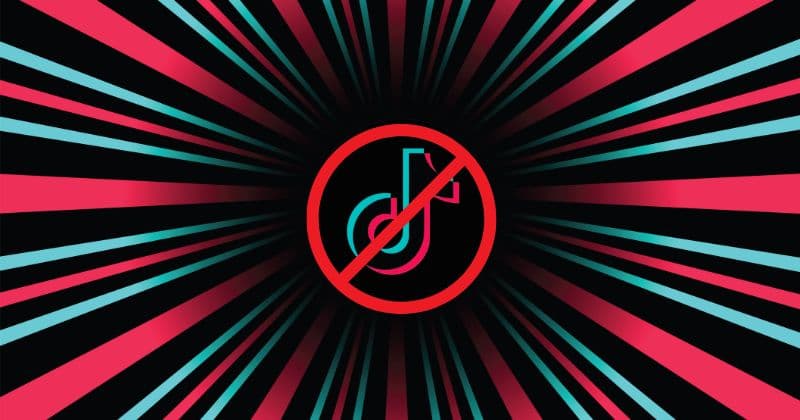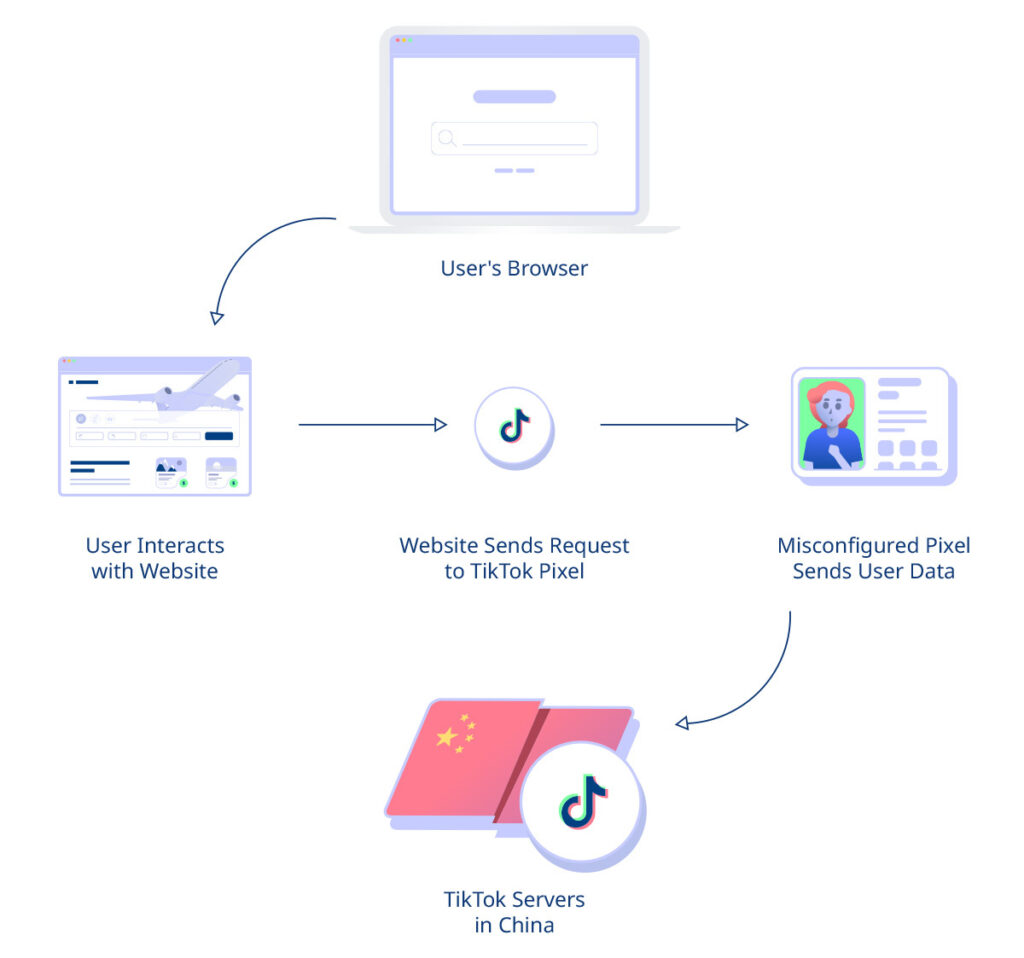Is The TikTok Ban A Blow To Free Speech?

The United States has long been wary of TikTok, the hugely popular video-sharing app owned by the Chinese company ByteDance. Concerns about the app’s data collection practices and potential ties to the Chinese government have led to calls for a ban, and on December 6, 2024, a federal appeals court upheld a law that could ban TikTok if its parent company doesn’t sell its stake in the app to a US-based company by January 19, 2025.
Is the TikTok ban a triumph for national security or a disaster for free speech? Let’s take a look at the issues.
A History of Security Concerns
The decision has sparked debate about the balance between free speech and national security. Supporters of a ban argue that it is necessary to protect Americans’ data from potential exploitation by the Chinese government. They point to reports that TikTok has collected extensive data on its users, including location data, browsing history, and even keystrokes. This information could be used to track individuals, manipulate their behavior, or even steal intellectual property.
The company was fined $5.4 million in 2023 by the French Data Protection Authority for cookie violations, and around $370 million by European Union regulators for child user data breaches. TikTok is also the subject of a current Department of Justice Lawsuit which alleges that the company allowed under-13s to sign up and then harvested their data, which violates the Children’s Online Privacy Protection Act of 1998. All of this goes to show that the company has a history of playing fast and loose with others’ data.
On the other side, opponents of the ban argue that it is an overreaction to a potential threat and that it infringes on the free speech rights of its 170 million American users. They argue that there is no evidence that TikTok has shared user data with the Chinese government and that the app’s data collection practices are similar to those of other social media platforms. They may have a point there. After all, Facebook was fined €1.2 billion in 2023 for mishandling data.
Read the latest case study: The TikTok Pixel Privacy Nightmare.
Why the Concern with China?
Back in December 2021, the Department of Homeland Security issued an advisory outlining, “…the persistent risk to American businesses of “Chinese government-sponsored data theft because of newly enacted Chinese laws — specifically, the National Intelligence Law of 2017, Data Security Law of 2020, and Cryptology Law of 2020.”
Under these laws, Chinese businesses and citizens must assist the Chinese government in gaining access to any data and related information it asks for, but this violates both US and International law. They give Chinese security and intelligence services the power to compel a company like TikTok to secretly pass them private information about its foreign users, share encryption keys, or install back doors, for instance.

The security implications of this are obvious. For a start, there’s tracking. Back in 2017, fitness tracking app company Strava caused concern among US military leadership when it publicly posted a ‘heat map’ showing the running routes of soldiers stationed around the world, the kind of data that could be useful to any adversary.
Given that China intends to become the dominant world superpower by 2049 (the centenary of the People’s Republic of China’s founding) and sees conflict as an inevitable part of that process, banning apps that it can influence like TikTok seems a sensible precaution. We already saw the damage caused by Pollyfill.io when it was acquired by the Chinese company Funnul. The new owner immediately modified scripts in the popular JavaScript library so they redirected the users of 110,000 websites to malicious and scam websites. Such potential could easily be weaponized by the state.
Freedom of Speech
Does the December 6 ruling violate the First Amendment, which prohibits Congress from passing laws that limit free speech? The federal appeals court said no. In Justice Ginsburg’s opinion, “The First Amendment exists to protect free speech in the United States. Here the government acted solely to protect that freedom from a foreign adversary nation and to limit that adversary’s ability to gather data on people in the United States.”
Not everyone agrees with this opinion, and some free speech advocates are alarmed. ByteDance has called the decision ‘outright censorship’ and the Knight First Amendment Institute at Columbia University considers it “…a deeply misguided ruling.”
President-elect Donald Trump has said that he will save TikTok. He won’t be sworn in until the day after the ban, but if ByteDance is seen to be making progress with a sale to a US company, then the deadline could potentially be extended by 90 days. At that point though, TikTok might become one part of wider trade negotiations, so its future would still be far from certain.
But even if TikTok does continue under a new US owner, businesses that use its tracking pixel need to stay on top of privacy concerns. Our security technology found that one of our customers, a global travel company that was targeting a younger audience, had misconfigured a TikTok tracking pixel. This oversight meant it was sending user data to Chinese servers without permission from users, risking GDPR fines of up to €20 million or 4% of its global annual turnover, whichever figure is higher.
What Does This Mean for Businesses and Consumers?
ByteDance may decide to take its case to the Supreme Court, but if the ban does become law, the effect on companies that use the platform for sales and marketing will be significant. One estimate put TikTok’s contribution to US GDP at $26.2 billion and said the platform supports 224,000 jobs, generating $5.3 billion per year in tax revenue. It’s mostly small businesses that have flourished on TikTok, run by content creators who have built their audiences over time and now monetize their presence there through brand partnerships and product sales.
With the prospect of a ban looming, some creators are already inviting their users to follow them to other platforms like Instagram and YouTube, so while the move will be tough for them, it need not shut down those businesses.
The TikTok ban may be a tougher sell for its 170 million American users, though. The average TikTok user spends 23.5 hours a month on the app, and heavy users might find its sudden absence tough to deal with.
The Supreme Court
Although ByteDance may try to take the case to the Supreme Court, it’s not certain whether they would be successful or even if the case would be heard, because the national security element would be such a major factor. As it stands, the new law still allows for TikTok to exist, albeit by severing connections with the Chinese state. As Professor Gautam Hans, at Cornell Law School, put it, “They were pretty careful to write the opinion in a way that makes it less likely the Supreme Court would grant a review, and I think part of that has to do with the national security implications here…the court was really willing to take those claims seriously.”
On the other hand, Alan Morrison, a professor at The George Washington University Law School, thinks the Supreme Court will take up the case because the lawsuit raises some novel issues. So, at this stage, it’s a case of wait-and-see.
Conclusion
Whatever happens to TikTok, businesses will still be using social media company tracking technologies to boost their marketing and advertising campaigns. With audiences in the millions, these platforms offer incredible reach, but as we’ve documented they also come with significant security and privacy concerns. Even without the potential influence of state actors siphoning off user data, it only takes one misconfiguration to breach data protection laws. But you can trust Reflectiz to ensure your tracking pixels don’t share your users’ private data with anyone they shouldn’t. Avoid data leaks, legal action, reputation loss, and regulatory fines: sign up today!
Subscribe to our newsletter
Stay updated with the latest news, articles, and insights from Reflectiz.
Your Website looks great!
But what’s happening behind the scenes?
Discover your website blind spots and vulnerabilities before it’s too late!







